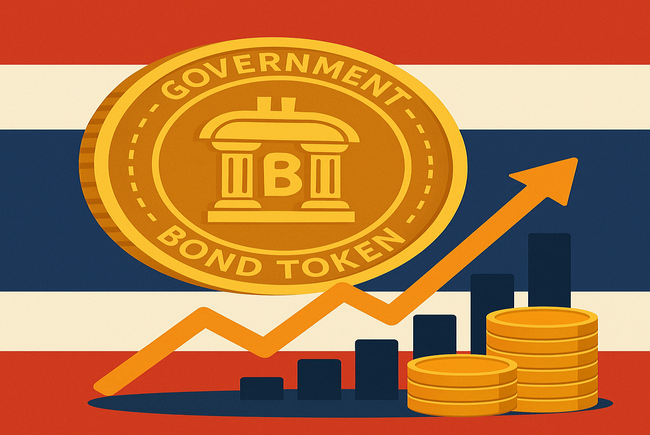Thailand’s Securities and Exchange Commission (SEC) has introduced regulations for a new government-issued digital token, G-Token, which will be used to raise funds to address the country’s budget shortfall. The offering, scheduled to commence on July 25, will be conducted through an authorized initial coin offering portal, with the Ministry of Finance serving as the registrar.
The SEC announced the regulatory framework on May 13, outlining the token’s function and limitations. While the G-Token is classified as a tokenized real-world asset, it cannot be used for payments or traded like traditional cryptocurrencies, the regulator said. The restrictions aim to ensure the token’s use remains within the scope of government fundraising rather than open market speculation.
Fundraising Tool, Not Currency
According to the SEC, the primary function of the G-Token is to facilitate direct public investment in state borrowing initiatives. The token represents a form of digital debt instrument backed by the Thai government, designed to raise capital for public spending needs.
Authorities emphasized that the G-Token does not possess the characteristics of digital currencies. It will not be accepted as legal tender nor traded on cryptocurrency exchanges. These limitations aim to maintain regulatory oversight, distinguishing the asset from volatile digital coins.
The offering will raise approximately $150 million, with specific terms — including maturity, interest rates and collateral — to be detailed closer to the launch date. The Ministry of Finance will oversee the registration and compliance processes.
Part of Broader Digital Asset Strategy
The G-Token initiative reflects the Thai government’s cautious approach to incorporating blockchain-based instruments in public finance. While embracing certain digital innovations, officials have maintained strict regulatory controls regarding retail investor protection and market stability.
Thailand has previously implemented measures to govern digital asset businesses, including licensing requirements and consumer risk disclosures. The G-Token marks one of the first instances where the state is directly involved in issuing a blockchain-based fundraising tool under its authority.
The SEC has not indicated whether similar tokens may be used in future offerings or expanded to other sectors. However, the outcome of the initial launch may influence how digital financial instruments are integrated into the country’s broader fiscal strategy.
Financial analysts and regional regulators are closely monitoring the G-Token project, as it may serve as a model for other governments exploring tokenized public debt instruments.

